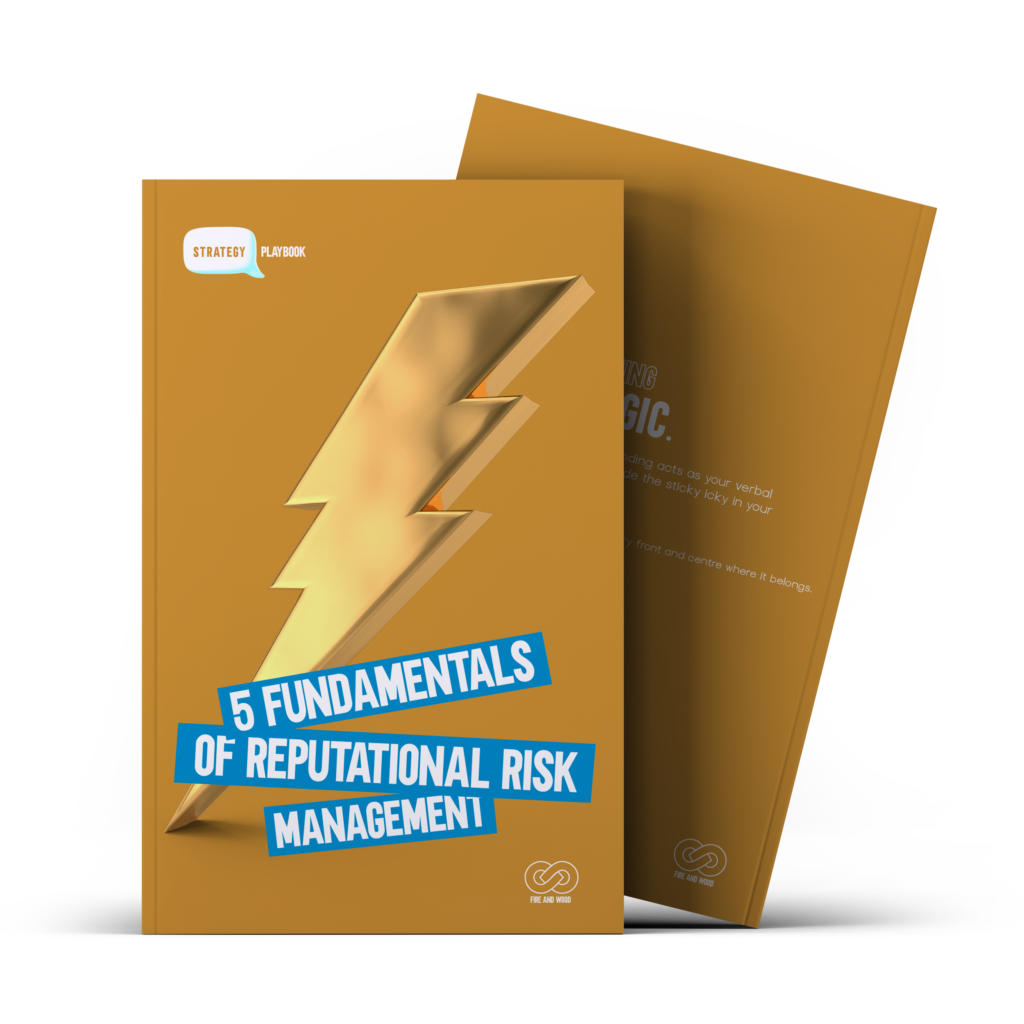Strategy
4 Beliefs of Reputational
Risk Management
Starting-up a start-up from the eyes of starter-uppers.

Todd O'Keefe
Chief Content Officer
Table of Contents
Understanding brand reputation
It seems that every time we turn on our computer or phone, we see examples of people, companies and even industries torpedoed by a reputation crisis.
A legitimate crisis needs to be on the official record.
But, as indicated by a startling trend from the top 10 findings of Edelman’s 22nd annual trust and credibility survey, concerns over weaponized fake news are at a record high of 76 per cent.
A few careless actions or choice words can quickly destroy years of hard work.
And it happens at all company levels.
Brand reputation is a priceless asset.
Your reputational risk needs to be managed in a manner where it creates an advantage for improving perception and accelerating recovery.
Reputation is largely a matter of perception
Reputational risk is defined as a threat of damage, liability, loss or negative occurrence caused by external or internal vulnerabilities.
It can typically be navigated through proactive and preventative planning to identify and evaluate potential brand risks.
How the marketplace, investors, consumers and other stakeholders perceive your company’s character, value, position and trustworthiness influence your reputation.
Trust is everything
Stakeholders and customers base their feelings and beliefs about companies on their experiences, on what other people say about the company.
And arguably, over time, how consistently that company delivers on its brand promises.
The challenge arises when the brand has built trust with stakeholders and customers and the promise of their experience disappoints or upsets the market.
Stakeholders might be open to forgiving one or two small mistakes, but not so much when an issue fundamentally conflicts with a brand’s promise.
It dilutes belief in the promise and creates deep fractures in the brand’s core purpose, and not only to reputation—but to the viability of the company.
Even though a damaged reputation is not as serious as an immediate threat to public safety, reputation damage leads to a loss of sales and public trust.
Not to mention, disturbing rumours and distracted employees are never a good thing for productive daily operations and run the risk of negatively impacting profitability.
Today, more than ever, a brand’s ability to identify, evaluate and navigate reputation risk can determine more than its viability.
It also determines its humanized approach to leadership.
4 beliefs of brand reputation risk management
Here are four approaches for employing healthy reputational risk management beliefs and building a humanized reputation that lasts the test of time.
1. Create trust
How do all of your stakeholders interact with your brand experience? Do your target audiences, such as your employees, customers and the media, trust your company?
Trust is a currency that pays off in all relationships—especially in a society where the default reaction is to now distrust until proven otherwise.
2. Be consistent
Inconsistent brand promises and experiences create confusion about what the company stands for and believes.
Know what your brand stands for, or more importantly—doesn’t stand for.
3. Live your brand
The values and promises of the company should be transparent to create loyalty with your target audience from top to bottom.
Live up to your core purpose and face the risk head on. It pays off.
A 2021 survey from the PR firm Porter Novelli states that 73% of people are less likely to cancel a purpose-driven brand.
4. Stay on brand
Reputations must be trusted, consistent and fully integrated into the brand.
If your company isn’t advocated for, referred to or shared often by your target audience, you are vulnerable and at high risk in a crisis.
Looking for more ways to navigate reputational risk management?
Grab your playbook for insights into why reputation is important and how to predict, prepare and prevent risks to your brand.
Gain more confidence when handling brand crises and fixing risk plan vulnerabilities.
GET THE GOODS
Our starter-upper blog is a place you’ll find creative trade secrets, shop talk and the trials and errors of a creative incubator.
Our goal is to make things people will enjoy and want to share—from storytelling and copyhacking best practices to articles, videos and white papers.
Join the Starter-Upper newsletter today and get more articles like these ones.

PROTECT
YOUR BRAND
REPUTATION
Take a deep dive into your
free copy of the 5 Fundamentals of Reputational Risk Management and start building a bulletproof brand reputation that stands the test of time.
GET THE STARTER-UPPER INSIGHTS

